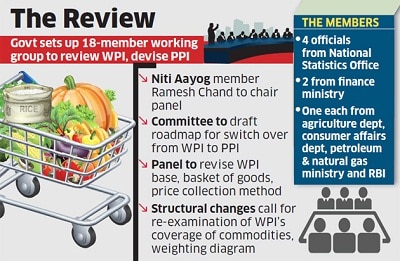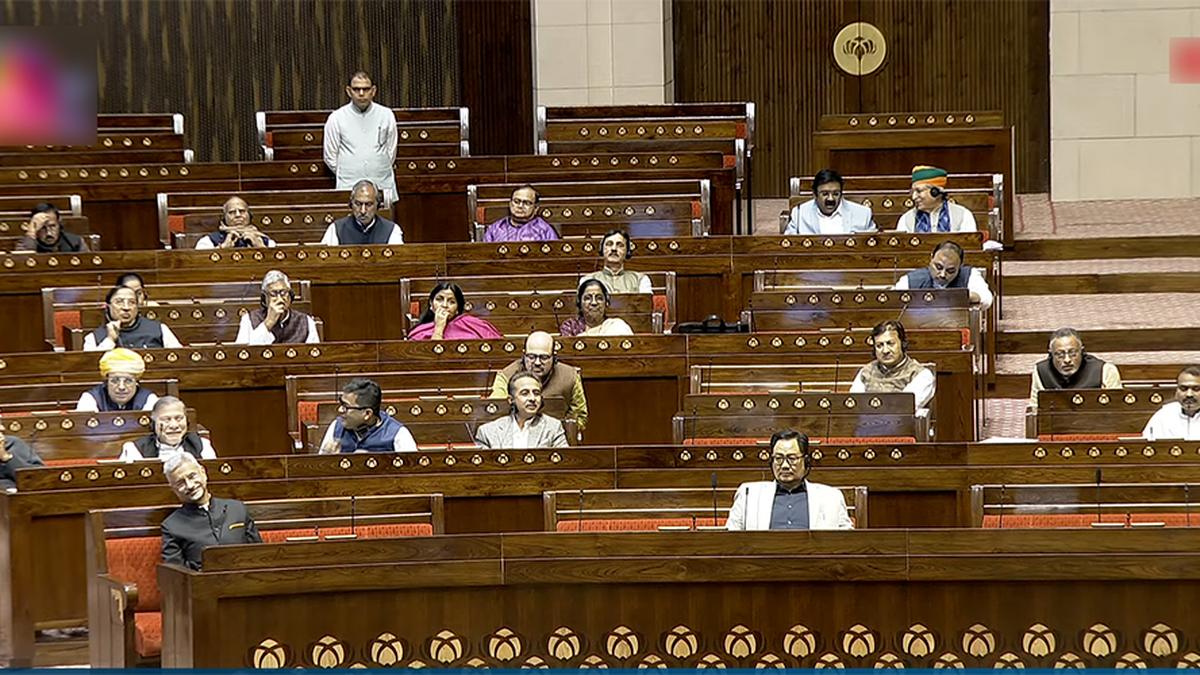GEAPP and ISA Sign $100 Million Agreement for Solar Projects

- 12 Jan 2025
In News:
The Global Energy Alliance for People and Planet (GEAPP) signed a Multi-Donor Trust Fund (MDTF) agreement with the International Solar Alliance (ISA) to mobilize $100 million for funding high-impact solar energy projects. This collaboration is part of a wider effort to accelerate India's clean energy transition, bridge financing gaps, and enhance the country's energy systems. Along with this agreement, two other key initiatives were announced:
- DUET (Digitalization of Utilities for Energy Transition)
- ENTICE 2.0 (Energy Transitions Innovation Challenge)
These programs aim to address energy transition challenges by fostering scalable, cost-efficient solutions, digitalizing utilities, and supporting innovations for sustainable energy.
Key Features:
- Multi-Donor Trust Fund (MDTF):
- The MDTF aims to raise and deploy $100 million to finance impactful solar energy projects, with ISA driving the strategic direction.
- GEAPP’s Project Management Unit will provide governance, fundraising, and technical expertise to ensure project success.
- The collaboration emphasizes the importance of solar energy in achieving India's clean energy goals.
- DUET (Digitalization of Utilities for Energy Transition):
- Focuses on transforming grid systems by digitalizing grid assets and integrating them with smart sensors.
- Real-time data will help reduce transmission losses and facilitate Battery Energy Storage Systems (BESS) deployment, assisting in the integration of Distributed Renewable Energy (DRE) into the grid.
- ENTICE 2.0 (Energy Transitions Innovation Challenge):
- A platform for identifying and scaling innovative solutions to accelerate the clean energy transition, especially within India's growing startup ecosystem.
- Focuses on supporting investable opportunities for energy transition solutions, building on the earlier success of ENTICE 1.0.
Global Impact of GEAPP:
GEAPP, launched with an initial commitment of $464 million, has already funded 130 projects across 40 countries. These projects have impacted over 50 million people, helping reduce 43 million tons of CO2 emissions. The collaboration with ISA is expected to deepen GEAPP's efforts in mobilizing capital to foster clean energy access and tackle climate change.
India’s Clean Energy Transition:
India has already extended electricity access to over 800 million people, but about 2.5% of households still remain unelectrified. Distributed renewable energy, especially solar energy, will play a pivotal role in reaching these underserved populations. India aims for 47 GW of battery energy storage systems by 2032, which will support grid stability and energy access.
Additional Initiatives and Impact:
- Battery Energy Storage Systems (BESS):
- GEAPP has also supported India’s first commercial standalone BESS project, which will provide 24/7 power to over 12,000 low-income customers.
- The project is set to lower electricity tariffs by 55%, benefiting economically disadvantaged communities.
- Strategic Alliances:
- The partnership with ISA and the strategic initiatives like DUET and ENTICE 2.0 aim to further India’s climate and energy goals, bringing renewable energy solutions to underserved regions, and supporting the country's energy security.
Role of GEAPP and ISA:
- GEAPP works to mobilize financing, provide technical expertise, and ensure effective implementation of renewable energy projects globally.
- ISA focuses on solar energy solutions, and with this agreement, it seeks to enhance the solar energy capacity in its member countries, aligning with climate targets.
About GEAPP:
GEAPP is a multi-stakeholder alliance comprising governments, philanthropy, technology partners, and financial institutions. Its goal is to transition developing economies to clean energy while enhancing economic growth. It aims to:
- Reduce 4 gigatons of carbon emissions.
- Provide clean energy access to 1 billion people.
- Create 150 million new jobs globally.
Ramesh Chand Panel

- 03 Jan 2025
In News:
The Government of India has formed an 18-member panel, headed by Ramesh Chand, a member of NITI Aayog, to revise the base year of the Wholesale Price Index (WPI) to 2022-23 from the current base year of 2011-12. The panel will also work on a roadmap for transitioning from WPI to the Producer Price Index (PPI).
Key Highlights:
Role and Mandates of the Panel:
- Revised Commodity Basket: The panel will recommend a new commodity basket for both WPI and PPI, reflecting structural changes in the economy.
- Review of Price Collection System: The panel will evaluate the current system for price collection and propose improvements.
- Computational Methodology: It will determine the computational methodology for both WPI and PPI to ensure accuracy in tracking price changes.
- The panel has been tasked with submitting its final report to the Office of the Economic Adviser at the Department for Promotion of Industry and Internal Trade (DPIT) within 18 months.
Understanding WPI vs. PPI:
- WPI (Wholesale Price Index) tracks the price of goods at the wholesale stage (i.e., goods sold in bulk to businesses), and excludes the service sector.
- Key Characteristics of WPI:
- Does not consider consumer-facing prices.
- Excludes services (about 55% of GDP).
- Can have double-counting bias due to multiple transactions before the final sale.
- Does not account for indirect taxes and may include export/import prices.
- Use: WPI helps in tracking bulk price movements between businesses, but doesn't fully represent consumer price inflation.
- Key Characteristics of WPI:
- PPI (Producer Price Index) tracks prices at various stages of production, considering both goods and services, and measures the average change in prices received by domestic producers.
- Key Characteristics of PPI:
- Excludes indirect taxes (making it more accurate for price movement tracking).
- Includes services, unlike WPI, giving a broader view of price trends across the economy.
- More aligned with international standards (System of National Accounts).
- Reflects prices before consumer consumption, providing a business-oriented perspective of price trends.
- Key Characteristics of PPI:
Why the Transition to PPI?
- The PPI is already used by major economies like the US, China, Germany, and Japan as it provides a more comprehensive measure of inflation from a producer’s perspective.
- It is expected to be a better indicator of inflationary trends in the overall economy, including both goods and services.
Challenges and Roadmap:
- The switch to PPI is complex, and the panel will need to ensure that the transition does not disrupt the current data collection and reporting systems. Both WPI and PPI will run concurrently until PPI stabilizes.
BharatiyaVayuyanVidheyak Bill, 2024

- 06 Dec 2024
In News:
In a significant move, the Indian Parliament passed the BharatiyaVayuyanVidheyak Bill, 2024 on December 5, 2024, bringing much-needed reforms to the aviation sector. The Bill, which replaces the Aircraft Act of 1934, aims to streamline aviation regulations and improve the ease of doing business in the industry.
Key Highlights of the BharatiyaVayuyanVidheyak Bill, 2024:
- Single-Window Clearance for Aviation Personnel: One of the major changes is the transfer of responsibility for the Radio Telephone Operator Restricted (RTR) certification from the Department of Telecom (DoT) to the Directorate General of Civil Aviation (DGCA). This move consolidates the certification process under a single authority, making it easier for aviation personnel like pilots, engineers, and flight dispatchers to obtain their licenses.
- Regulation of Aircraft Design: The Bill not only retains provisions for regulating aircraft manufacturing, maintenance, and repair, but also introduces new provisions to regulate aircraft design and the places where aircraft are designed.
- Enhanced Penalties for Violations: The Bill specifies severe penalties for violations, such as dangerous flying, carrying prohibited items (like arms or explosives), or littering near airports. Offenders may face imprisonment up to three years, fines up to ?1 crore, or both.
- Introduction of Second Appeal Mechanism: For the first time, the Bill introduces a second appeal process against decisions of regulatory bodies like the DGCA and BCAS, ensuring further scrutiny of decisions related to penalties.
- Improved Licensing Process: The shift of the RTR certification process from the DoT to DGCA aims to curb allegations of corruption associated with the previous system, where candidates often had to pay bribes to clear exams.
Organizational Setup and Authorities:
The Bill outlines the establishment of three key authorities under the Ministry of Civil Aviation:
- DGCA: Responsible for civil aviation safety, licensing, and ensuring compliance with international standards.
- BCAS: Ensures aviation security and develops relevant security measures.
- AAIB: Investigates aviation accidents and incidents.
The central government retains supervision over these bodies, with the power to modify or review their orders.
Criticisms and Concerns:
- Lack of Autonomy for DGCA: The DGCA, unlike independent regulators in other sectors (such as telecom or insurance), operates under direct government supervision. The lack of clear qualifications, selection process, and tenure for the DGCA Director General has raised concerns about the regulator's independence.
- Unilateral Appointment of Arbitrators: The Bill empowers the government to unilaterally appoint an arbitrator in certain cases, which has been criticized for potentially violating the right to equality under Article 14 of the Constitution. The Supreme Court has previously ruled that such unilateral appointments may be unconstitutional.
- Discretionary Criminal Penalties: The central government is granted the discretion to impose criminal penalties for rule violations, which some argue could undermine the principle of separation of powers, as it is the legislature's role to define criminal offenses and penalties.
- Exclusionary Hindi Title: Some critics argue that the Hindi title of the Bill may alienate non-Hindi-speaking populations, which make up a significant portion of India’s demographic.
